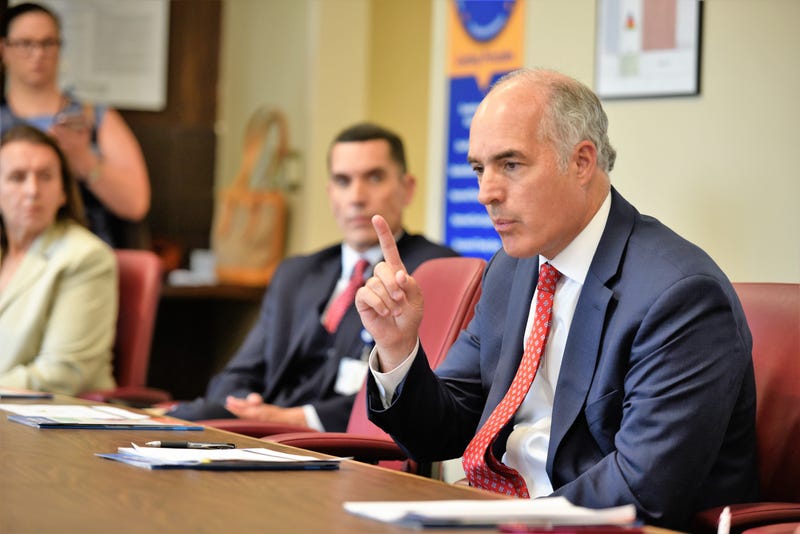
U.S. Senator Bob Casey (D-PA) will introduce two policing reform bills Tuesday that aim to improve law enforcement interactions with people with disabilities and mental health issues.
Casey previewed the bills on a media call Monday.
The Human-services Emergency Logistics Program (HELP) Act would divert non-criminal emergency calls away from law enforcement and to mental health services. The bill would also enhance 2-1-1 and 9-8-8 referral systems.
The Safe Interactions Act would bolster training for law enforcement to support safer interactions with those with disabilities, especially during a crisis. Non-profit disability organizations would develop the training programs in partnership with law enforcement. People with disabilities would also serve as trainers and oversight committee members.
"These bills are designed to get people the services and supports that they need and to reduce demands on law enforcement," Casey said.
Pittsburgh Police Lt. Eric Kroll, who has a son with autism, backed the bills on Monday's call.
He highlighted recent situations where his officers from Zone Five were called to people experiencing a mental health crisis.
Kroll said a few weeks ago, Zone Five officers encountered a person who was threatening officers with a sword. He added the situation was resolved without issue.
"If we're looking to law enforcement, I think it's very important that we get people into services, we provide those services even to those officers who come across these call at 2 and 3 a.m. like we do every night and get that help there," he said. "That, in turn, will make the community safer. It will reengage and allow more trust of law enforcement and it will provide the necessary services to those who are most vulnerable."
Among the bills' cosponsors is Sen. Jerry Moran (R-KS).
U.S. Representatives Susan Wild (D-PA) and Brian Fitzpatrick (R-PA) are introducing companion legislation in the House of Representatives.
"So, that's good news," Casey said of the bipartisan support. "We're divided on so much, we ought to be able to come together to help people with disabilities in a time of crisis and also to help our law enforcement officials at the same time."
